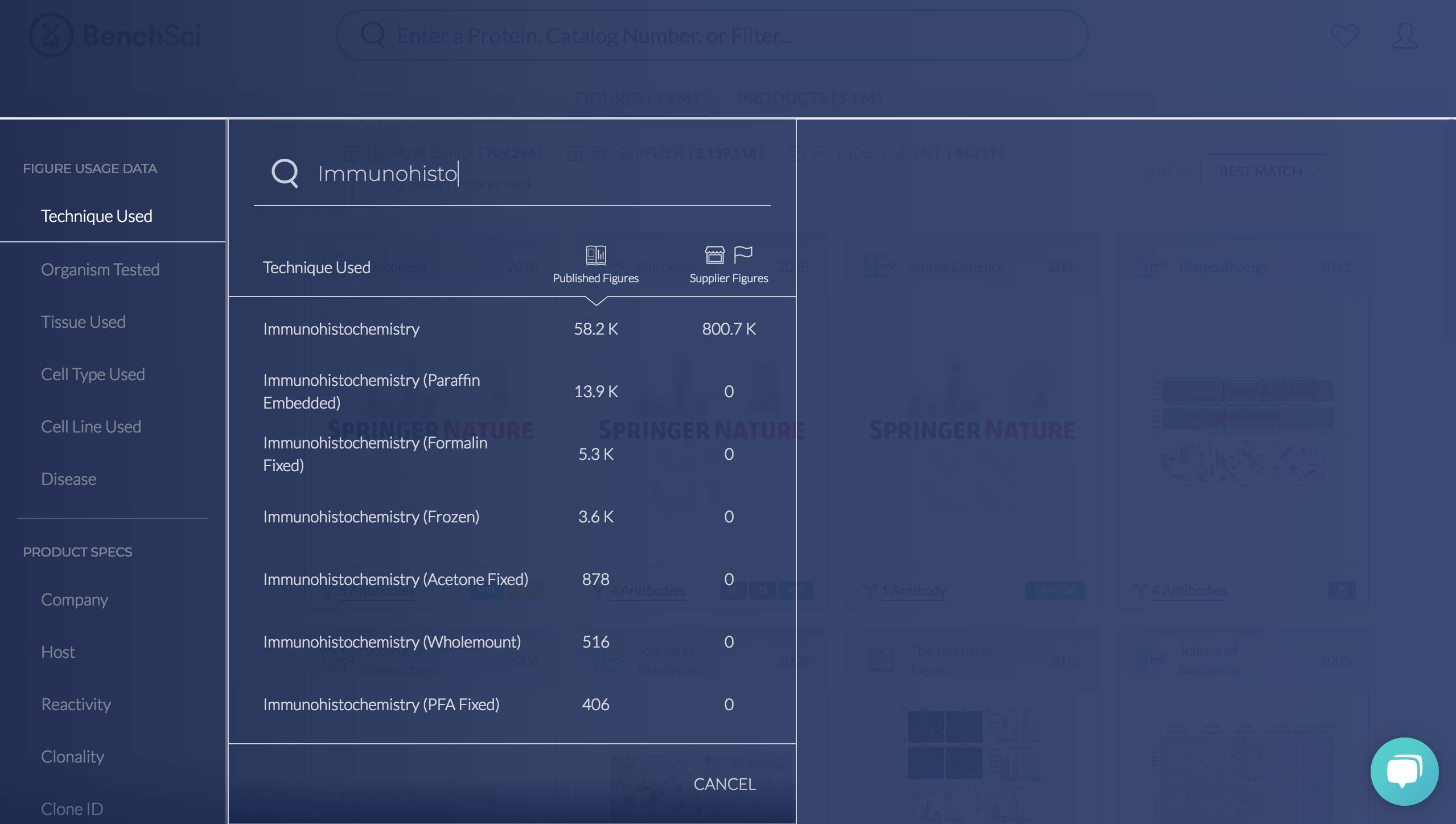Halloween is just around the corner! For those of us at the bench, nothing is scarier than seeing one of these in the lab. (Warning: Botched westerns ahead; viewer discretion is advised.)
To make sure you don’t see something similar in your research, we rolled out some exciting updates to further improve your antibody search on BenchSci.
Read on to find out what they are!
Filter Figures by Specific Technique Subtypes
An antibody’s specificity is dependent on the way the sample is treated, so it is imperative to confirm that an antibody has been shown to work in your technique of interest. However, there are variations in the protocol for certain techniques, such as the different fixation methods for immunohistochemistry (IHC) or the different ELISA subtypes, and knowing whether an antibody has worked in a specific technique subtype is also important to consider when selecting/searching for an antibody.
To ensure that you can find the most relevant data, we refined the Technique Used filter and further categorized several techniques into various subtypes. You can see the full list below:
- Neutralizing Assay
- Depletion
- ELISA
- Sandwich
- Peptide
- Indirect
- Capture
- Direct
- ELISpot
- Multiplex
- Competitive
- Chromatin Immunoprecipitation
- ChIP-Chip
- Sequencing
- Immunohistochemistry
- Frozen
- Paraffin Embedded
- Formalin Fixed
- Periodate Lysine Paraformaldehyde Fixed
- Acetone Fixed
- PFA Fixed
- Methanol Fixed
- Wholemount
- Resin
- Immunofluorescence
- Wholemount
- Laser Confocal Microscopy
- Paraffin Embedded
You can easily apply the new filters by clicking on “Technique Used” and search for a technique to see all of it’s sub-types. For example, immunohistochemistry:

Even More Antibodies and Clone IDs
We added more antibodies to our database, currently at 5,123,664, strengthening our position as the largest antibody database in the world.
We also added more clone IDs (total of 101,853) and associated them with the corresponding monoclonal antibodies (1,097,014 mAbs now mapped with a clone ID), so you can find the relevant data even if the paper only cited a clone ID.
That’s it! Go ahead and give our new technique subtype filter a try and let us know your thoughts in the comments below.
Happy researching!
{{cta(’94c5a0a1-2bfe-4f21-b119-9df291d1607b’)}}